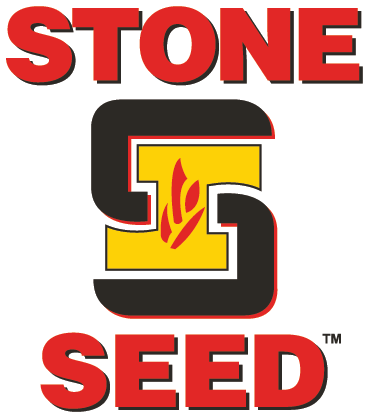January 11, 2019
Trial Objective
- To optimize yield potential, soybean growers often plant as early as possible within the recommended planting window. Such early planting predisposes seeds and young seedlings to early-season stressors, such as insects, diseases, and cool, wet soils, which can significantly affect stand establishment and overall plant and field health.
- To help alleviate some of the early planting challenges, the use of seed treatments has become an important tool in fields prone to early-season stressors. Insecticides, fungicides, and nematicides are the common components of most seed treatments, and the choice depends on the anticipated pest to be controlled.
- The objective of this study was to determine soybean product performance as influenced by two seed treatment options.
Research Site Details

- Twenty-seven soybean products ranging from 1.8 to 3.7 maturity group (MG) were planted at an average of 140,000 seeds/acre.
- Each product received two types of seed treatments:
— Base seed treatment (fungicide and insecticide)
— Base + ILeVO® seed treatment
— ILeVO® is a systemic soybean seed treatment for protection against early-season damage caused by pathogenic nematodes and Fusarium virguliforme, which causes Sudden Death Syndrome (SDS).
- The trial was planted in 30-inch row spacing, two rows per product per treatment, 200-ft long plots, and three replications.
- There was a low level of SDS incidence at the research site.
- No symptoms of soybean cyst nematode (SCN) were observed at the research site. 2017 soil samples showed low SCN levels.
- Weed management consisted of a rye burndown with Roundup PowerMAX® herbicide and a post-emergence application of XtendiMax® herbicide with VaporGrip® Technology, Warrant® Herbicide, and Roundup PowerMAX® herbicide.
Understanding the Results
- In general, ILeVO® seed treatment did not substantially affect grain moisture content and stem lodging, but did have a remarkable affect on plant density in some products (Table 1).
- Of the 27 products tested, eight (approx. 30%) did not have a positive yield response to ILeVO® seed treatment. Of the remaining 70% that responded positively, the yield advantage ranged between 0.5 to 10.8 bu/acre (Figure 1).
- The average yield response to ILeVO® seed treatment for all products was 2.53 bu/acre; however, when looking only at the products that showed a positive yield response with ILeVO® seed treatment, the average yield response was 4.8 bu/acre (Figure 1).
- In general, products with an SDS score of 3 had the lowest yield response to ILeVO® seed treatment (Figure 2).



What Does This Mean for Your Farm?
- Several seed treatment options are available to growers and a decision should be based on the challenges of the operation and the expected economic value (ROI).
- Fungicides and insecticides should be the platform upon which other seed treatment options are based, where needed.
- Not all SDS infections produce foliar symptoms. Thus, the disease could be robbing yields without growers knowing. ILeVO® seed treatment is mainly recommended for SDS control and could be an important addition to the seed treatment platform of the operation.
- With the current soybean grain price at $7.50/bu, a minimum of a 1.6 bu/acre yield increase was needed in this trial to offset the cost of ILeVO® seed treatment (approx. $12.0/acre) (Figure 1).
- In this trial, product tolerance (an SDS score of 3) provided good control of the disease, thus ILeVO® was not warranted. Where product tolerance is lacking, ILeVO® could provide more than a 2 bu/acre economic gain for the operation (Figure 2).
- As always, growers are encouraged to conduct small-scale trials on their fields to evaluate the value of new practices to their operations. They should also consult their trusted agronomists and dealers when choosing the best seed products for their operations.
